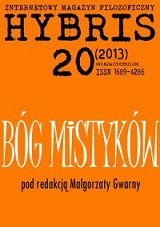Uciekinierzy z Aten. Rosyjska filozofia XIX i XX wieku wobec "niepoznawalności Boga"
Refugees from Athens. Russian Philosophy of the Turn of the XIXth and XXth Century and the "Unknowableness of God"
Author(s): Michał PodstawskiSubject(s): Philosophy
Published by: Wydawnictwo Uniwersytetu Łódzkiego
Keywords: Florensky; Solovyov; Shestov; rationality; faith
Summary/Abstract: When we analyze the turn of the XIXth and XXth century in the Russian philosophy we often use the term "silver age" to emphasize its rapid development during that time. It is well known that the Orthodox Church with its principles remained independent from philosophy for a long time. It is only during the "silver age" that the efforts were taken to properly recognise the type of relations combining faith and science. However, it turned out that, regarding this matter, the experience of the East cannot be translated into the language of Western philosophy. This is why the greatest thinkers of this period, such as Pavel Florensky and Vladimir Solovyov, had to undertake a tremendous task of constructing the intellectual foundations for their spiritual tradition. When it comes to summarizing this era, Lev Shestov wrote that in the European philosophy one can distinguish between to currents of thought. The first is the rational one originating from Athens and is characteristic to the philosophy of the West. The second one comes from Jerusalem and is based on the Revelation, specifically - the miracles. It is characteristic to the thinking of the East. The question is wether Shestov properly grasped the core of the problem, and wether it is the Orthodox Church that is in fact closer to the Ancient Greek understanding of the philosophical reality.
Journal: Internetowy Magazyn Filozoficzny HYBRIS
- Issue Year: 2013
- Issue No: 20
- Page Range: 40-48
- Page Count: 8
- Language: Polish

